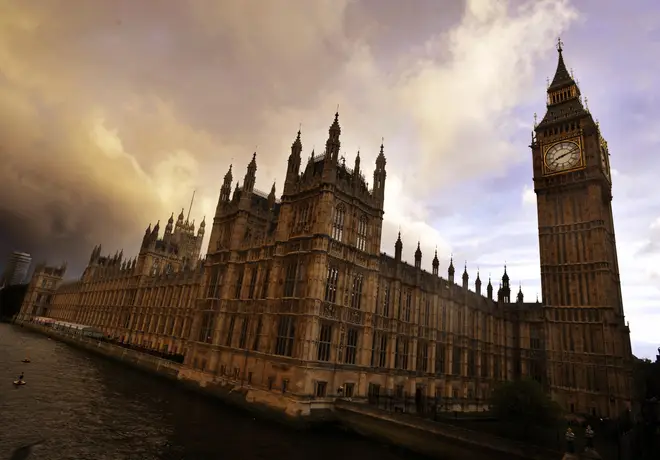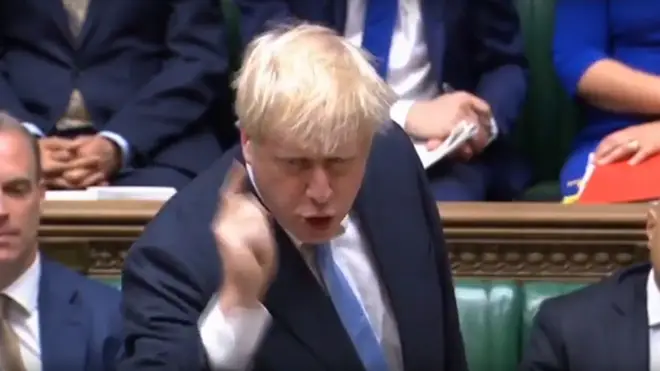
Matthew Wright 7am - 10am
8 August 2019, 13:34 | Updated: 28 October 2019, 15:53

With talk of Jeremy Corbyn calling a vote of no confidence in Boris Johnson, LBC look into exactly what that would mean.
Jeremy Corbyn said in August that Labour would call a vote of no confidence in Boris Johnson's government at an "appropriate very early time" following the summer recess, but what does that mean?
A vote of no confidence, or to give it the legal term a motion of no confidence, or censure motion, is a vote moved in the House of Commons with the wording: "That this House has no confidence in HM Government."
Every member of Parliament would then be required to vote on whether to continue supporting the sitting government.
The Parliament website says: "It is a core convention of the UK constitution that the Government must be able to command the confidence of the House of Commons."
Currently Boris Johnson does not have a majority in the Commons, and is reliant on a deal Theresa May made with the Northern Irish Democratic Unionist Party.

If the motion was tabled then Boris Johnson would need a majority of MPs from all parties to vote that they had confidence in his government.
If a vote was passed, and the House of Commons declared they did not have confidence in Boris Johnson's government then the existing MPs would have 14 days where they could attempt to form a new government.
The House of Commons would then have to vote on whether or not they now had confidence in the new government.
If a new government cannot gain the confidence of the house within a 14 day period then Parliament is dissolved and an early General Election is triggered.
A motion of no confidence is one of only two ways in which an early General Election may be triggered under the terms of the Fixed Term Parliaments Act 2011.
The last time there was a no confidence motion in the government was when Theresa May survived an attempt to push her government out of office in a no-confidence vote in January 2019 when the House of Commons supported her 325 to 306.
Prior to that governments have been defeated on questions of confidence on four occasions. The defeats on questions of confidence in 1895 and January 1924 led to the resignation of the Government and the defeats in October 1924 and 1979 were followed by requests for a dissolution.